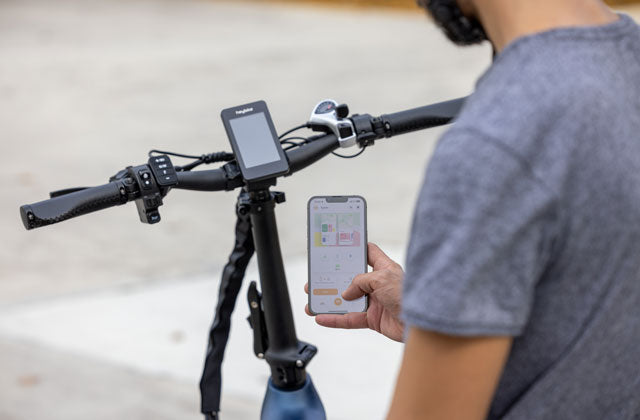How Does Electric Bikes Define in Florida?
The state of Florida defines Electric bikes as traditional bikes with motors and fully functional pedals powered by human power. You should not be able to remove the pedals. There are three categories of Ebikes in Ebike laws Florida. The maximum assisted speed for each class is between 20 and 28 mph, and the highest motor power is 750W. The rules governing Ebikes vary from state to state.
The three-class system has been implemented by several states, although not all of them. Counties frequently have their area-specific Ebike regulations. The electric bike laws in Florida are explained here with clarity, but each county may have a few minor differences in Ebike use on local pathways and trails.

Ebike Classifications in Florida
In Florida, Ebikes are classified into three categories. Florida allows all classes of Ebikes, including Class 3 Ebikes, but Ebikes can’t have an electric motor that exceeds a power wattage of 750W.
- Class 1 Ebike (also called a pedelec): These Ebikes do not exceed a top speed of 20 mph. They only work when riders are pedaling, and there is no throttle on the bikes.
- Class 2 Ebike: These Ebikes do not exceed a top speed of 20 mph, but they have a throttle to work without riders' pedaling.
- Class 3 Ebike: These bikes can reach a speed up to 28 mph. They have a pedal assist system, but no throttle assist. Usually, there is a speedometer on these bikes.
Do You Need a License to Ride Ebikes in Florida?
No, in Florida you do not need a license to ride an electric bike. This is due to Florida's classification of electric bikes as bicycles, meaning that they are subject to the same laws and regulations as traditional bicycles.
How Old Do You Have to Be to Ride an Ebike in Florida?
In Florida, there are currently no minimum age requirements for riding an electric bike. Previously, riders had to be at least 16 years old, but this age restriction has been removed. However, riders under the age of 16 are required to wear a helmet when operating an Ebike.
It's also important to note that while Florida state law doesn't impose age restrictions, some local municipalities may have specific regulations, so it's a good idea to check local ordinances before riding.
Do You Have to Wear a Helmet on an Electric Bike in Florida? What About Other Safety Equipment?
Helmet use for electric bike riders depends on the rider's age. Riders under the age of 16 are required by law to wear a helmet when operating an Ebike. For riders aged 16 and older, wearing a helmet is not mandated by state law, but it is strongly recommended for safety.
For nighttime riding and low visibility, a front white light is required to be visible from at least 500 feet, and a rear red reflector is required to be visible from all distances from 100 to 600 feet. A rear red light visible from 600 feet to the rear may be used in addition to the red reflector, but is not mandated.
Some localities might have additional helmet requirements or other equipment regulations. It is always a good idea to check for any local city or county ordinances (such as Miami and Orlando) that might have stricter requirements than state law.
Do You Need Insurance to Ride an Ebike in Florida?
Florida doesn't require insurance for Ebikes as long as they fit the 3 classifications and don't exceed 28 mph. The state law does not require Ebike riders to have insurance, a driver's license, or to register their Ebike. This applies to all classes of Ebikes, as they are considered bicycles under Florida law.
However, while insurance is not mandatory, it might still be a good idea to have insurance coverage for additional protection, especially if you use your Ebike frequently or in busy areas.
Where Can You Ride Ebikes in Florida?
In Florida, electric bikes can generally be ridden in the same places as traditional bicycles, but there are some distinctions based on the class of Ebike and local regulations.
- Sidewalks: Local authorities regulate the use of Ebikes on sidewalks. It is advised to check with local regulations to figure out the rules.
- Bike Lanes and Paths: Class 1 and Class 2 Ebikes are allowed on bike lanes and paths. Class 3 Ebikes may be subject to specific local regulations.
- Roads and Streets: All classes of Ebikes are allowed on public roads and streets where bicycles are permitted. Riders must follow the same traffic rules that apply to bicycles.
- Parks and Public Spaces: Ebike usage in parks and other public spaces is regulated locally. Check with relative management authorities for specific rules.
Conclusion
To be a responsible citizen and avoid violating the relative regulations, it is recommended to check the latest Florida Ebike Law in 2025. Safety always comes first. Heybike electric bikes adhere to the rules and regulations of producing and selling. Our Ebikes also meet the UL 2849 Safety Standards. Learn the new Ebike law, and gear up for a safe and enjoyable e-biking trip!


Share:
Virginia Ebike Law: Everythng You Should Know
New California Ebike Law 2025: Important Updates You Should Know